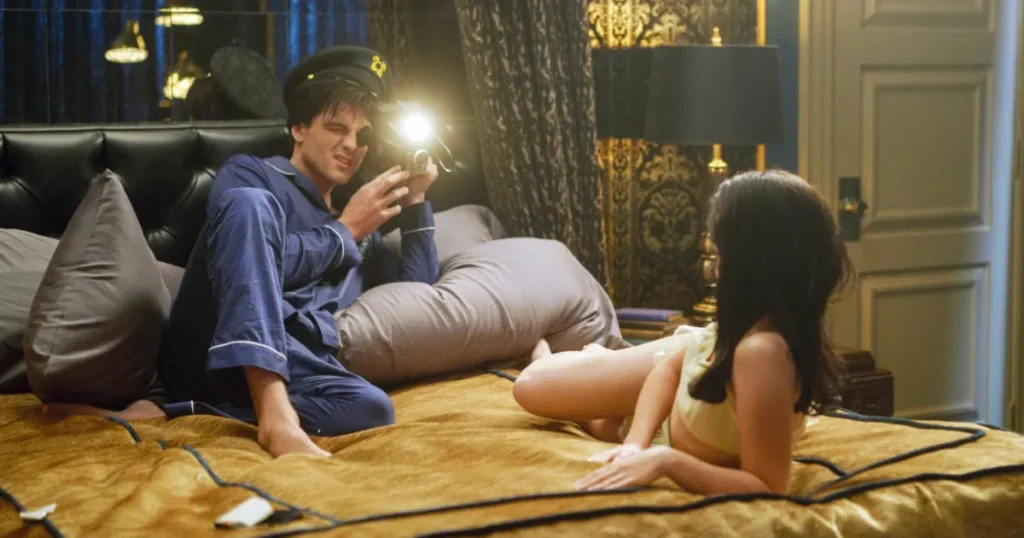Tubi: The People’s Streamer Offers Cinematic Gems for Free
In today’s streaming landscape, where subscription fees stack up faster than unwatched shows in your queue, Tubi has earned its nickname as “the people’s streamer” by offering an impressive catalog of films completely free of charge. The only price of admission? A few advertisements during your viewing experience—a small trade-off for access to such a diverse library of cinematic treasures. From indie darlings to blockbuster hits, Tubi’s collection spans decades and genres, making it a haven for movie enthusiasts on a budget. This November, the platform showcases an especially compelling lineup worth exploring, featuring everything from Sofia Coppola’s intimate character studies to high-octane action thrillers that defined an era of filmmaking.
Among Tubi’s standout offerings is Sofia Coppola’s “Priscilla,” a nuanced biodrama that delicately unfolds the complicated relationship between young Priscilla Beaulieu and rock legend Elvis Presley. The film begins with their meeting in Germany—she just fourteen, he ten years her senior—and traces their journey from controversial courtship to marriage. Unlike Baz Luhrmann’s flashier “Elvis,” Coppola’s lens focuses squarely on Priscilla’s perspective, examining the isolation and constraints she experienced despite her proximity to fame. Jacob Elordi portrays Elvis as we rarely see him: behind closed doors, away from the spotlight. Through Coppola’s signature atmospheric style, we witness Priscilla’s gilded cage—how newfound celebrity brought attention but not freedom, and how the King of Rock ‘n’ Roll’s lifestyle impacted the woman who stood in his shadow. The film continues Coppola’s exploration of feminine isolation within the confines of fame, creating a portrait that’s both intimate and universal.
For those drawn to quirky indie cinema, Jim Jarmusch’s “Down by Law” offers a hypnotic journey through New Orleans and the Louisiana bayou with three unlikely companions. The story throws together Jack (John Lurie), a dispassionate pimp; Zack (Tom Waits), a listless disc jockey; and Roberto (Roberto Benigni), an irrepressibly cheerful Italian tourist—all sharing a prison cell after being arrested for crimes of varying legitimacy. When Roberto orchestrates an escape, the trio embarks on a meandering odyssey through the Louisiana wilderness, their personalities constantly clashing along the way. Jarmusch crafts a distinctly American tale about distinctly American anxieties, using his signature black-and-white cinematography and deadpan humor to explore themes of freedom, friendship, and the elusive American Dream. The film’s magic lies in the chemistry between its leads—particularly the comedic tension between the perpetually grumpy Americans and Benigni’s enthusiastic foreigner—creating a road movie unlike any other.
Horror aficionados will find much to appreciate in Oz Perkins’ “The Blackcoat’s Daughter,” a chilling supernatural tale that weaves together the stories of three young women during a desolate winter break at a prestigious boarding school. When Kat (Kiernan Shipka) and Rose (Lucy Boynton) are mysteriously left behind while other students depart, strange occurrences begin to plague the nearly empty campus. Meanwhile, a third young woman named Joan (Emma Roberts) hitchhikes toward the school with an unsuspecting couple, her intentions unclear but increasingly ominous. Perkins—who recently gained wider recognition with “Longlegs”—demonstrates his mastery of atmospheric dread, creating a horror experience that relies more on creeping unease than jump scares. The film’s triptych narrative structure gradually reveals its secrets, rewarding attentive viewers with a story more complex and emotionally resonant than standard possession fare. With outstanding performances from its three leading actresses and a haunting score that enhances the winter isolation, “The Blackcoat’s Daughter” stands as one of modern horror’s hidden gems.
Brandon Cronenberg proves the apple doesn’t fall far from the tree in “Possessor,” a mind-bending sci-fi horror film that would make his father David proud. The film follows corporate assassin Tasya Vos (Andrea Riseborough), who uses brain implant technology to inhabit other people’s bodies and commit untraceable murders for high-paying clients. Her latest assignment requires possessing Colin Tate (Christopher Abbott) to eliminate CEO John Parse (Sean Bean), but complications arise when Tasya’s consciousness begins to fragment, and Colin’s personality fights for control. What follows is a visceral battle for identity played out through shocking violence and hallucinatory imagery. Cronenberg combines his father’s trademark body horror with contemporary concerns about technology, surveillance, and identity, creating a film that’s both intellectually stimulating and visually arresting. Riseborough and Abbott deliver tour-de-force performances, essentially playing dual roles as their characters’ minds blur together. Though not for the faint of heart—the film features graphic violence and disturbing imagery—”Possessor” rewards viewers seeking challenging, thought-provoking science fiction that explores the boundaries between self and other.
No discussion of Tubi’s offerings would be complete without mentioning John Woo’s gloriously over-the-top action masterpiece “Face/Off,” which features Nicolas Cage and John Travolta in what might be the most entertaining role-swapping experiment in cinema history. The premise is deliciously absurd: FBI agent Sean Archer (Travolta) undergoes experimental surgery to take the face of comatose terrorist Castor Troy (Cage) to infiltrate his organization. When Troy awakens and forces doctors to give him Archer’s face, the stage is set for an identity crisis of explosive proportions. What elevates the film beyond its bonkers concept is the commitment of its leads—Travolta and Cage clearly relish the opportunity to mimic each other’s mannerisms and acting styles, creating performances that are simultaneously ridiculous and captivating. Woo brings his signature balletic action sequences to Hollywood, with slow-motion gunfights and explosive set pieces that defined late ’90s action cinema. For those who appreciate films that embrace their own absurdity while delivering genuine thrills, “Face/Off” remains an unmatched experience—one that’s all the more delightful for being available without subscription fees. Along with Norwegian gem “The Worst Person in the World”—a deeply relatable coming-of-age story that follows indecisive twenty-something Julie through her romantic and professional misadventures—these films represent just a small sample of the cinematic riches awaiting discovery on “the people’s streamer.”


